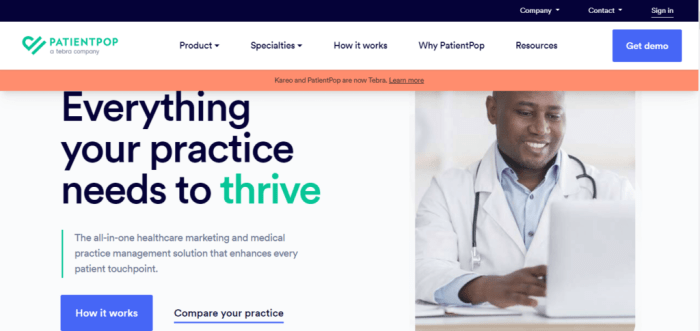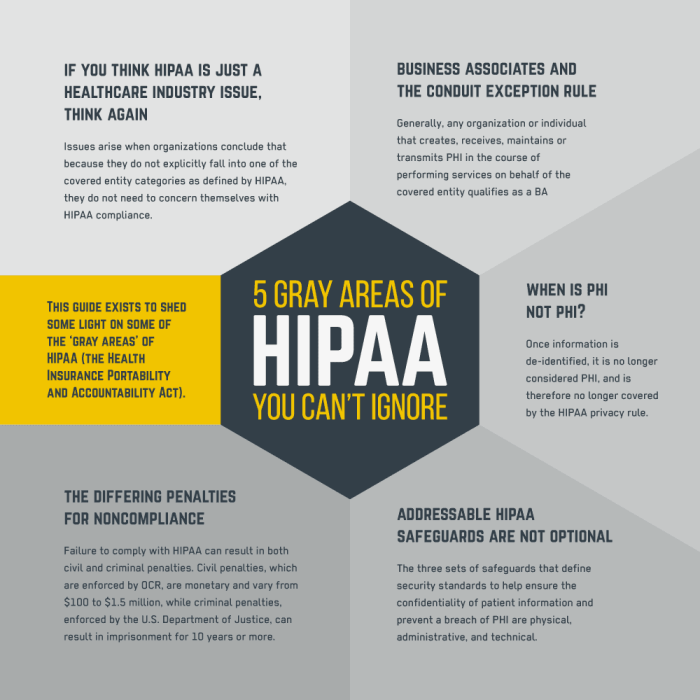Crm software hipaa compliant – The healthcare industry operates under strict regulations, particularly concerning patient data privacy. The Health Insurance Portability and Accountability Act of 1996 (HIPAA) mandates robust security measures to protect Protected Health Information (PHI). For healthcare providers and organizations managing patient data, choosing a HIPAA compliant CRM (Customer Relationship Management) system is paramount. This comprehensive guide will delve into the intricacies of HIPAA compliant CRM software, helping you navigate the selection process and ensure your organization remains compliant.

Source: kohezion.com
Understanding HIPAA Compliance and CRM Software: Crm Software Hipaa Compliant
Before diving into specific software, it’s crucial to understand the core principles of HIPAA compliance. HIPAA’s Privacy Rule, Security Rule, and Breach Notification Rule dictate how PHI must be handled, stored, and transmitted. A CRM system, used for managing patient interactions, scheduling appointments, tracking communications, and storing patient data, becomes a critical component in achieving HIPAA compliance. Failure to comply can lead to significant financial penalties and reputational damage.
Key HIPAA Requirements for CRM Systems
- Data Encryption: Both data at rest (stored on servers) and data in transit (during transmission) must be encrypted using strong encryption algorithms like AES-256.
- Access Control: Strict access controls should be implemented, limiting access to PHI based on roles and responsibilities. Only authorized personnel should have access to sensitive patient data.
- Audit Trails: The system must maintain detailed audit trails, recording all accesses, modifications, and deletions of PHI. This allows for tracking and accountability.
- Business Associate Agreements (BAAs): If your CRM vendor handles PHI on your behalf, you must have a valid BAA in place. This legally obligates the vendor to comply with HIPAA regulations.
- Data Backup and Disaster Recovery: Robust backup and disaster recovery plans are essential to ensure data availability and prevent data loss in case of emergencies.
- Employee Training: All employees with access to the CRM system must receive comprehensive training on HIPAA regulations and proper data handling procedures.
- Physical Security: If PHI is stored on physical servers, appropriate physical security measures must be in place to prevent unauthorized access.
Choosing a HIPAA Compliant CRM: Key Considerations
Selecting a HIPAA compliant CRM involves careful consideration of several factors. Don’t solely rely on vendor claims; conduct thorough due diligence.
Features to Look For in a HIPAA Compliant CRM, Crm software hipaa compliant
- Explicit HIPAA Compliance Statement: The vendor should explicitly state their commitment to HIPAA compliance on their website and in their documentation.
- BAA Availability: Ensure the vendor offers a BAA that meets your organization’s needs.
- Data Encryption: Verify the encryption methods used for both data at rest and data in transit.
- Access Control Mechanisms: Assess the system’s role-based access control features and their effectiveness.
- Audit Trails: Examine the detail and comprehensiveness of the audit trails generated by the system.
- Security Certifications: Look for relevant security certifications, such as SOC 2 Type II, ISO 27001, or HITRUST CSF certification.
- Regular Security Updates: The vendor should provide regular security updates and patches to address vulnerabilities.
- Data Backup and Recovery: Understand the vendor’s backup and recovery procedures and their frequency.
- Vendor Reputation and Track Record: Research the vendor’s reputation and track record in the healthcare industry.
Top Features of HIPAA Compliant CRM Software
Beyond the basic compliance requirements, several features can enhance the functionality and efficiency of a HIPAA compliant CRM in a healthcare setting.
Advanced Features Enhancing Efficiency and Compliance
- Patient Portal Integration: Allows patients secure access to their medical records and communication with providers.
- Appointment Scheduling: Streamlines appointment scheduling and reduces no-shows.
- E-Prescribing Integration: Facilitates secure electronic prescribing of medications.
- Reporting and Analytics: Provides valuable insights into patient data for improved care and operational efficiency.
- Workflow Automation: Automates repetitive tasks, freeing up staff time for patient care.
- Integration with EHR Systems: Seamlessly integrates with existing Electronic Health Record (EHR) systems for a holistic view of patient data.
- Secure Messaging: Enables secure communication between patients and providers.
Frequently Asked Questions (FAQ)
- Q: What is a Business Associate Agreement (BAA)?
A: A BAA is a contract between a covered entity (healthcare provider) and a business associate (vendor) that Artikels the responsibilities of both parties in protecting PHI. - Q: How can I ensure my CRM vendor is truly HIPAA compliant?
A: Don’t just rely on marketing materials. Request a copy of their BAA, inquire about their security certifications, and ask for details about their security practices. - Q: What are the penalties for HIPAA violations?
A: Penalties can range from thousands to millions of dollars, depending on the severity of the violation. - Q: Can I use a standard CRM and make it HIPAA compliant?
A: It’s generally not recommended. HIPAA compliant CRMs are built with security features from the ground up. Modifying a standard CRM to meet HIPAA requirements can be complex and may not be fully effective. - Q: What is the role of encryption in HIPAA compliance?
A: Encryption is crucial for protecting PHI both when it’s stored and when it’s being transmitted. It renders the data unreadable to unauthorized individuals.
Conclusion
Selecting a HIPAA compliant CRM is a critical decision for any healthcare organization. By carefully considering the factors Artikeld in this guide, you can ensure your organization chooses a system that protects patient data and maintains compliance with HIPAA regulations. Remember to prioritize security, conduct thorough due diligence, and always prioritize patient privacy.
Call to Action
Ready to find the perfect HIPAA compliant CRM for your healthcare practice? Contact us today for a free consultation and let us help you navigate the complexities of HIPAA compliance.
Key Questions Answered
What are the key features of a HIPAA-compliant CRM?
Key features include data encryption both in transit and at rest, robust access controls with role-based permissions, audit trails for tracking data access, and business associate agreements (BAAs) with vendors.

Source: saaslist.com
How much does HIPAA-compliant CRM software cost?
Pricing varies greatly depending on the vendor, features, and number of users. Expect a range from affordable options for small practices to enterprise-level solutions with higher price tags.
Can I use a standard CRM and make it HIPAA compliant?
While some CRMs offer HIPAA compliance add-ons, it’s generally safer and more reliable to choose a system specifically designed and certified for HIPAA compliance from the outset.
What happens if my HIPAA-compliant CRM experiences a data breach?
A breach requires immediate notification to affected individuals and regulatory bodies, along with a thorough investigation and remediation plan. A well-chosen CRM should include breach response features and documentation.
